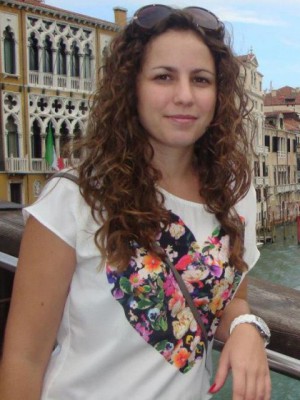resumo
Fractionation of terpenes from natural complex matrices is economically attractive due to the wide use of these compounds in the cosmetic, food, and pharmaceutical industries. In this study, the potentialities of ionic liquids (ILs), and their mixtures, as separation agents in the fractionation of essential oils, were assessed through experimental and modeling approaches. Inverse gas chromatography was used to investigate solute-solvent interactions, and the COSMO-RS predic t i v e model was applied to describe the experimental data and to search for other potential ILs by selecting the appropriate cation-anion combination. Both the experimental and predicted approaches demonstrate that chloride-based ILs are very good options for fractionating essential oi l s containing hydrogen-bond donor monoterpenoids. In particular, the experimental and COSMO-RS screenings suggest that [P6,6,6,14]Cl gives the best performance for the separation of the main components present in citrus, mentha, and basil essential oils. The results gathered herein allow a deep understanding of terpene-IL interactions, and support the prediction of the ILs performance in the extraction and separation of natural products, optimizing resources and promoting sustainabi l i t y .
palavras-chave
LONGIFOLIA L. HUDS.; MENTHA-SPICATA L.; COSMO-RS; ACTIVITY-COEFFICIENTS; INFINITE DILUTION; CHEMICAL-COMPOSITION; THERMODYNAMIC PROPERTIES; PHYSICOCHEMICAL PROPERTIES; ANTIMICROBIAL ACTIVITY; CINNAMOMUM-ZEYLANICUM
categoria
Engineering
autores
Vilas-Boas, SM; Coelho, AZ; Martins, MAR; Coutinho, JAP; Ferreira, O; Pinho, SP
nossos autores
Projectos
CICECO - Aveiro Institute of Materials (UIDB/50011/2020)
CICECO - Aveiro Institute of Materials (UIDP/50011/2020)
Associated Laboratory CICECO-Aveiro Institute of Materials (LA/P/0006/2020)
agradecimentos
This study was developed within the scope of the project CICECO-Aveiro Institute of Materials, UIDB/50011/2020, UIDP/50011/2020 & LA/P/0006/2020, and CIMO (UIDB/00690/2020 and UIDP/00690/2020) and SusTEC (LA/P/0007/2021) , financed by national funds through the FCT/MEC (PIDDAC) . S.M.V.-B. thanks FCT and the European Social Fund (ESF) for his Ph.D. grant (SFRH/BD/138149/2018 and COVID/BD/152936/2022) .




